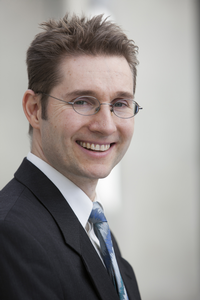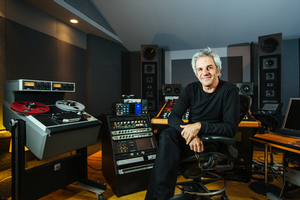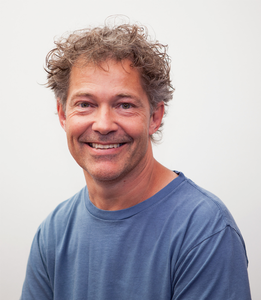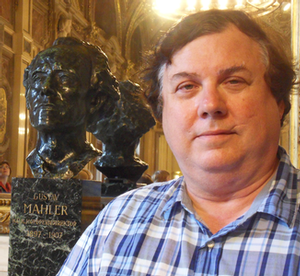
AES Warsaw 2015
Workshop Details
Thursday, May 7, 11:00 — 12:45 (Room: Opera)
W1 - Automotive Sound—The Making of the Sound System in a Car
Chair:Grzegorz Sikora, Bang & Olufsen Deutschland GmbH - Pullach, Germany
Panelists:
Thomas Bachmann, Fraunhofer Institute for Integrated Circuits IIS - Erlangen, Germany
Edwin Cappleman, Bang & Olufsen
Peter John Chapman, Bang & Olufsen a/s - Struer, Denmark
Abstract:
In this workshop we look behind the scenes of developing an OEM sound system, "the making of." It’s a unique opportunity to understand the key fundamentals of the Automotive Audio perspective, from the project team behind many successful OEM sound systems. This workshop will cover a range of topics, from the initial idea to the finished product. The experts from the respective fields will discuss car cabin acoustics, loudspeaker selection and placement, mechanics, signal flow and amplifier characteristics, sound tuning, audio design philosophy, and creation of the 3D sound algorithm. Apart from the engineering part, project planning and communication between OEM and supplier will also be explained. Each topic will be discussed in general and in the context of actual projects.
Thursday, May 7, 16:00 — 17:30 (Room: Balowa)
W2 - ISO/MPEG-H Audio—The New Standard for Universal Spatial / 3D Audio Coding
Chair:Jürgen Herre, International Audio Laboratories Erlangen - Erlangen, Germany; Fraunhofer IIS - Erlangen, Germany
Panelists:
Alexander Krüger, Technicolor
Nils Peters, Qualcomm - San Diego, CA, USA
Jan Plogsties, Fraunhofer Institute for Integrated Circuits IIS - Erlangen, Germany
Ulli Scuda, Fraunhofer Institute for Integrated Circuits IIS - Erlangen, Germany
Abstract:
Recently, the ISO/MPEG standardization group created the MPEG-H 3D Audio specification to go along with Ultra High Definition Television (UHDT) video. The specification features several unique elements, such as handling of channel-based content, object-based content, and higher order ambisonics (HOA) content or the capability of rendering encoded high-quality content on a wide range of loudspeaker setups (22.2 ... 5.1 ... stereo / headphones). This workshop provides an overview of the MPEG-H 3D Audio standard regarding its underlying architecture, technology, performance and how to produce immersive content for it.
Friday, May 8, 09:00 — 11:00 (Room: Balowa)
W3 - Mixing Meets Mastering: Where the Line Becomes Blurred
Chair:Rob Toulson, Anglia Ruskin University - Cambridge, UK
Panelists:
George Massenburg, Schulich School of Music, McGill University - Montreal, Quebec, Canada; Centre for Interdisciplinary Research in Music Media and Technology (CIRMMT) - Montreal, Quebec, Canada
Mandy Parnell, Black Saloon Studios - London, UK
Darcy Proper, Wisseloord Studios - Hilversum, The Netherlands
Michael Romanowski, Michael Romanowski Mastering - San Francisco, CA, USA; Owner Coast Recorders
Ronald Prent, Wisseloord Studios - Eemnes, Netherlands
Abstract:
This workshop will discuss the evolution of mixing and mastering, particularly with reference to scenarios when the two practices become merged into one. There are a number of arguments for and against the use of mastering techniques at the mixing stage. For example, it can be argued that mix engineers need to take a greater responsibility towards dynamics and noise cancellation. Whereas, in contrast, the use of mix bus limiting when generating draft listening copies can confuse and falsify the sign-off process. Furthermore, mastering engineers might be tempted to work from mix stems, but does that mean they are effectively mixing as well as mastering the songs? We will also explore professional and home studio practices, innovative tools, and educational approaches
Friday, May 8, 09:00 — 10:30 (Room: Opera)
W4 - Recent Developments in Sound Field Synthesis
Chair:Sascha Spors, University of Rostock - Rostock, Germany
Panelists:
Filippo Maria Fazi, University of Southampton - Southampton, Hampshire, UK
Ville Pulkki, Aalto University - Espoo, Finland
Thomas Sporer, Fraunhofer Institute for Digital Media Technology IDMT - Ilmenau, Germany
Abstract:
Wave Field Synthesis (WFS) and higher-order Ambisonics (HOA) are two prominent representatives of Sound Field Synthesis techniques. Even after several decades research and development for both techniques is still very actively conducted. This workshop discusses recent activities and trends in WFS and HOA.
Friday, May 8, 10:45 — 12:15 (Room: Opera)
W5 - Cinema Loudness Working Group—Draft Recommended Practice
Chair:Brian McCarty, Coral Sea Studios Pty. Ltd - Clifton Beach, QLD, Australia
Panelists:
Florian Camerer, ORF - Austrian TV - Vienna, Austria; EBU - European Broadcasting Union
Eelco Grimm, HKU University of the Arts - Utrecht, Netherlands; Grimm Audio - Eindhoven, The Netherlands
Abstract:
The AES 57th International Conference in Hollywood discussed the plethora of audio mixes that are being created for use across multiple distribution platforms. It is vital for the industry to simplify the mixing process and develop techniques and technology to allow one master mix to service all these platforms. We will review the Draft Recommended Practice as proposed by the Standards Working Group.
Friday, May 8, 11:15 — 12:15 (Room: Balowa)
W6 - 3D 9.1 for Creating an Impressive Movie Sound
Presenter:Lasse Nipkow, Silent Work LLC - Zurich, Switzerland
Abstract:
A 3D 9.1 reproducing system provides much more possibilities to create an impressive sound of a movie in comparison to stereo and Surround. The most important improvements are more loudspeakers for creating real sound sources, an incredible envelopment, and realistic sounding soundscapes. The sound of movies contains several sound layers. Each sound of those layers can be extended from mono or stereo to 3D by using psychoacoustical rules. Those psychoacoustical rules are divided into different groups according to the above-described improvements. During the presentation, a couple of rules will be described and demonstrated with example recordings (synchronized audio and video).
Friday, May 8, 12:30 — 14:00 (Room: Balowa)
W7 - Loudness Wars: Give Peaks a Chance
Chair:Thomas Lund, TC Electronic A/S - Risskov, Denmark
Panelists:
Florian Camerer, ORF - Austrian TV - Vienna, Austria; EBU - European Broadcasting Union
George Massenburg, Schulich School of Music, McGill University - Montreal, Quebec, Canada; Centre for Interdisciplinary Research in Music Media and Technology (CIRMMT) - Montreal, Quebec, Canada
Abstract:
Music production, distribution, and consumption has been caught in a vicious spiral rendering two decades of our music heritage irreversibly damaged. Today, new tracks and remastered ones typically sound worse than what could even be expected from compact cassette. As a professional society, do we just sit by and let that happen on our watch?
Florian and Thomas are at the helm of two European initiatives to reverse this spiral: EBU R 128 and EU legislation to prevent early hearing loss from listening to personal music players. That combination will soon make even the most ignorant A&R manager realize that it's futile to master music louder than –16 LUFS, as more and more platforms as well as Radio are implementing loudness normalization per default.
Friday, May 8, 14:15 — 15:45 (Room: Balowa)
W8 - How Are We Learning Mastering, Teaching Mastering—The Next Wave
Chair:Jonathan Wyner, Berklee College of Music - Boston, MA, USA; M Works Mastering
Abstract:
Traditionally mastering has been learned by apprenticing. Now with the proliferation of educational resources and the evolution of affordable high quality in-the-box processing, more people are practicing mastering in more places than ever before. Teaching a young engineer to become a top flight mastering engineer can be challenging. Have you wondered: What does "Experienced Mastering Engineer" mean? What's the secret of mastering? In this workshop, seasoned mastering engineers and educators discuss how the craft is being taught and learned and how the next generation of mastering engineers will learn from their contemporaries. Topics will include what time tested practices remain essential and what is new in the discipline of mastering. Attendees of this workshop will walk away with a clearer understanding of what it takes to thrive in today's mastering market, how to assess internship/mentorship over "going solo" early in a mastering career, and how to grow/build your mastering skills in today's market.
Friday, May 8, 16:00 — 18:00 (Room: Opera)
W9 - Objective Evaluation in Semantic Audio Analysis and Processing
Co-chairs:György Fazekas, Queen Mary University of London - London, UK
Christian Uhle, Fraunhofer Institute for Integrated Circuits IIS - Erlangen, Germany
Panelists:
Colin Raffael, Columbia University - New York, NY, USA
Xavier Serra, Universitat Pompeu Fabra - Barcelona, Spain
Bob Sturm, Queen Mary University of London - London, UK
Abstract:
Semantic audio analysis and processing facilitate methods to interact with digital audio either at the producer or consumer end of the production value chain. Techniques include note onset detection, beat tracking, chord estimation, i.e., the extraction of meaningful information from music signals, as well as interactive techniques such as the use of audio source separation to enable remixing or improved audio editing. There have been significant advancements in this field over the last few years, but in many areas of semantic audio objective evaluation remains elusive due partly to the difficulties of mapping between signal features and high-level concepts meaningful to humans, and partly to the difficulties in identifying relevant factors, such as appropriate perceptual attributes in specific user-facing applications. Other emerging and industry relevant needs include scaling up evaluation to large audio collections, support research reproducibility possibly via the use of ontologies, and the inclusion of problems related to non-Western music. This workshop will discuss cross cutting issues in the evaluation of semantic audio technologies. The discussion will be centered around case studies related to objective evaluation, discuss emerging needs in industry and academia, and aim to help practitioners in the adaptation of semantic audio techniques throughout the field of audio.
Saturday, May 9, 09:00 — 11:00 (Room: Balowa)
W10 - World Class Film Sound Mixers
Chair:Brian McCarty, Coral Sea Studios Pty. Ltd - Clifton Beach, QLD, Australia
Panelists:
Kacper Habisiak, Dreamsound - Warsaw, Poland
Marcin Kasinski, Dreamsound - Warsaw, Poland
Filip Krzemien, Dreamsound - Warsaw, Poland
Abstract:
Three of Poland's leading cinema sound mixers discuss their craft—for both the professional doing Sound for Picture as well as students thinking about this for a career.
Saturday, May 9, 14:00 — 15:30 (Room: Balowa)
W11 - Whispers and Screams of the XII. Muse—A Word about Audio in Games
Presenters:Daniel Kleczynski
Maciej Miasik
Abstract:
This talk reviews the development of audio in games, giving a perspective against audio development in other media by reviewing the following topics: • Video games as a discipline of art; • The influence of pro-audio on game development; • Aesthetic, technical, and logical aspects of game sound design; • Differences between game audio and pro-audio; • The future of game audio.
This is designed to be informative to anyone working in audio engineering.
Saturday, May 9, 15:45 — 16:45 (Room: Opera)
W12 - Mobile Platforms, Hearing Loss and Loudness
Presenter:Thomas Lund, TC Electronic A/S - Risskov, Denmark
Abstract:
Millions of people are estimated to be at the risk of developing early hearing loss (HL) as a result of listening to so-called personal media players (PMPs). Legislation now mandated by the European Commission will have a profound influence on the audio delivery to mobile platforms, and therefore impact the broadcast industry at large. This presentation summarizes the current situation, and it discusses a next phase of safety standards. New methods would not only protect hearing better, but also help defuse the loudness wars in music. Maybe, afterall there will be some music heritage worth listening to from our time.
Sunday, May 10, 09:00 — 11:00 (Room: Balowa)
W13 - New Cinema Audio Standards
Chair:Brian McCarty, Coral Sea Studios Pty. Ltd - Clifton Beach, QLD, Australia
Abstract:
Significant changes are occurring to the production and exhibition environment for cinema sound. As the SMPTE works to consolidate the immersive sound formats into one distribution master, improvements to the playback environment continue. TC-SDCTV will look at some of the changes being made to improve the reproduction of immersive sound, as well as updates to the existing technologies.
Sunday, May 10, 14:00 — 15:30 (Room: Królewski)
W14 - Audio Restoration: From Analogue Transfer to Digital Signal Enhancement
Presenters:Andrzej Czyzewski, Gdansk University of Technology - Gdansk, Poland
Dietrich Schüller, Phonogrammarchiv - Vienna, Austria
Nadja Wallaszkovits, Phonogrammarchiv, Austrian Academy of Science - Vienna, Austria
Abstract:
The workshop will lead through the complete workflow chain of high quality audio restoration—from analogue to digital. Starting with the introduction to guidelines and best practices to preservation and restoration of analogue audio materials, practical examples of restoration and digitization procedures are outlined and presented. Finally signal enhancement in the digital domain is discussed and demonstrated on the basis of an experimental automated restoration process.
Sunday, May 10, 14:00 — 16:00 (Room: Balowa)
W15 - Mix Kitchen with Marek “Maro Music” Walaszek
Chair:Marek Walaszek, Addicted to Music Media Group - Jozefow, Poland
Panelists:
Bilon
Junior Stress
Szwed SWD
Abstract:
Mix Kitchen is a continuation of mixing tutorial presented at AES Budapest, AES Krakow, and at the AES student meet up in Graz. I will show mixing techniques based on modern recordings and interview the artist behind the music.
Sunday, May 10, 14:00 — 15:30 (Room: Opera)
W16 - The Audio of Dying Light
Presenter:Paula Karbowniczek, Techland - Wroclaw, Poland
Abstract:
Audio development is a crucial process that facilitates creation of engaging and atmospheric gameplay. This workshop is an in-depth look at audio design and implementation, focused on such related issues as creation of sound assets, composition of immersive soundscapes, or synchronization of music and action. It will also cover specific challenges that had to be overcome at various stages of developing Dying Light – the award-winning survival horror game set in a city devastated by a zombie epidemic.




